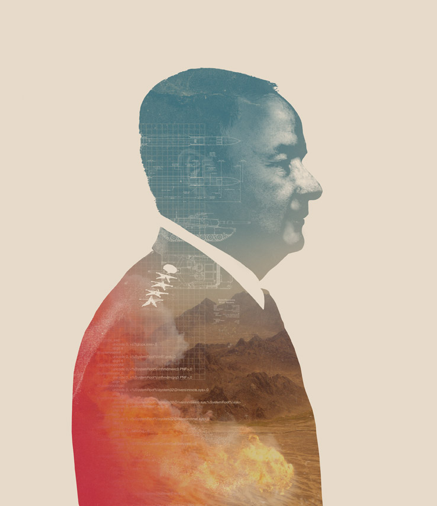
by Sayaan Saha
The National Security Agency is estimated to be the largest intelligence agency in the entire world, both by personnel and expenditure. But what do we really know about the NSA? The DOD is headquartered at the Pentagon; the CIA is headquartered at Langley and the FBI in Washington DC. So where is the NSA located? The FBI stops crime; the DOD protects our borders, and the CIA fights terrorists. So what does the NSA do? Even throughout the ongoing data mining scandal, the NSA has remains a shifty figure in the shadows. The agency has recently run into a lot of unwanted publicity with the Edward Snowden affair. However, amidst all of the whistle blowing, it seems NSA just becomes more opaque.
Let’s start at the top. The National Security Agency is located at Fort Meade, Maryland, it is directed by General Keith Alexander. Unlike their counterparts the Central Intelligence Agency and the Defense Intelligence Agency, the NSA is not authorized to conduct personnel based foreign espionage. Essentially, a spy agency with no spies. So it begs the question: Who populates the ranks of the NSA? The NSA recruits computer experts, hackers and engineering PhDs. It is the largest employer of mathematicians in the nation. The NSA isn’t looking for devilishly handsome, martini sipping lady-killers, like James Bond. They are looking for the math and computer geeks that are as skilled in programming and engineering as you and I are in breathing. At the top they are led by a four star military general, a graduate of West Point. He holds degrees in electronic warfare: physics, national security strategy and business administration. General Alexander has thus rightfully earned the nickname “Alexander the Geek.” I recommend looking at an amazing article on Wired.com that does an exemplary profile of General Alexander and is entitled “The Secret War.”
Under Alexander’s vast wings he commands the National Security Agency, the United States Military Cyber Command, and the Central Security Agency. He presides over the all three branches of the military, his domain ranges from our military’s cyber defense capabilities to clandestine signals intelligence. The sheer vastness of Alexander’s authority is unparalleled, and the range of his capabilities grows with every passing hour. When Alexander took the helm of the NSA in 2005, it was in danger of being left behind in the technological revolution. He is quoted in a New York Times article in that same year saying how the NSA needs to reform in order to become more “modern” and “advanced.” Within just a year of his ascension to the head of the Agency, the NSA developed a cripplingly advanced virus known as Stuxnet. A nasty bug designed to cause centrifuges that are used in nuclear plants to malfunction and destroy themselves. This virus was so advanced that it was able to cause critical damage to Iranian nuclear facilities while simultaneously creating the illusion that everything was fine. The Stuxnet virus was never detected by any of the Iranian scientists, even after it had destroyed the centrifuges. Ironically, the virus may have worked too well. The virus quickly began infecting other computers, and it began spreading to computers worldwide. It was only then, a third party cyber security agency was able to discover the virus. It was clear that the virus was so advanced that it could only have been built by thousands of hours of professional manpower.
Alexander took an agency on the brink of irrelevancy and in no time had it developing advanced viruses. Alongside the data mining and the tapping of phone calls, General Alexander builds cyber weapons. Unlike the numerous bombs and tanks in our military’s arsenal, Alexander’s weapons don’t hold any physically form. They don’t make a peep, and are virtually undetectable. Alexander can cripple your forces with his computers; he can cause critical damage to nuclear facilities, steal all of your secrets and disable your offensive capabilities. Electronic devices manage our world; computers manage our financial information, control UAV drones armed with bombs and help write that essay that is due next week. In 1908, Alexander Graham Bell famously said, “The nation that secures control of the air will ultimately rule the world.” For one hundred years that was identically true; however, as we begin to truly transition into the 21st century, it appears the nation that secures control of cyberspace will ultimately rule the world.